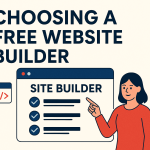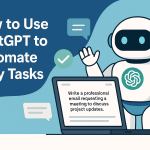Have you ever connected to free Wi-Fi at a coffee shop, airport, or hotel without a second thought? You’re not alone. Millions of people do it every day checking emails, logging into bank accounts, or shopping online. But what if I told you that using public Wi-Fi without a VPN is like shouting your personal information in a crowded room?
In this article, we’ll break down what makes public Wi-Fi so risky, what a VPN actually does, and why it’s the simplest and smartest way to protect your online privacy especially in today’s digital world.
The Hidden Dangers of Public Wi-Fi
1. Anyone Can Be Watching
Public networks are often unencrypted, meaning the data you send or receive is visible to anyone connected to the same network. A hacker sitting just a few tables away can intercept your data using basic tools no advanced hacking skills required.
2. Man-in-the-Middle Attacks
This is a common tactic where hackers position themselves between you and the website you’re trying to access. Everything you send passwords, credit card numbers, even private messages can be silently captured.
3. Fake Hotspots (Evil Twin Networks)
Cybercriminals sometimes create lookalike Wi-Fi networks with names like “FreeCafeWiFi” or “Airport_Free_WiFi.” If you connect to one of these, you’re essentially handing your data directly to the attacker.
What is a VPN and Why Do You Need One?
VPN stands for Virtual Private Network
A VPN creates a secure, encrypted tunnel between your device and the internet. That means even if you’re on a public network, no one else not hackers, not internet providers, not governments can see what you’re doing.
Here’s how it works:
- Your data is encrypted before it leaves your device.
- It gets routed through a secure VPN server, masking your IP address.
- The website you access only sees the VPN server, not you.
Even if someone intercepts the connection, they’ll only see garbled, unreadable data.
Real-Life Example: How Public Wi-Fi Can Betray You
Let’s say Chinedu, a student in Berlin, logs into his university portal over café Wi-Fi. Unknown to him, someone nearby is using a network sniffer. Because there’s no encryption, the hacker easily captures Chinedu’s login details and uses them to access not just his student account but also the same password he reuses for email and PayPal.
All of this could’ve been avoided if Chinedu had used a VPN.
What Happens When You Use a VPN on Public Wi-Fi?
Here’s what changes immediately:
| Without VPN | With VPN |
|---|---|
| Anyone can spy on traffic | Data is encrypted end-to-end |
| Exposed real IP address | IP address is masked |
| Risk of identity theft | Identity is protected |
| Open to tracking & ads | Browsing becomes private |
But Are VPNs Complicated to Use?
Not at all. In fact, most VPN apps take less than 3 minutes to set up. Whether you’re using a phone, tablet, or laptop, it’s as simple as:
- Downloading a trusted VPN app
- Logging in
- Tapping “Connect”
Done. You’re protected.
Some popular VPNs include:
- NordVPN
- ExpressVPN
- Surfshark
ProtonVPN (Free option available)
💡 Pro Tip: Always choose a VPN that has a no-logs policy and strong encryption standards like AES-256.
Other Simple Ways to Stay Safe on Public Wi-Fi (with or without VPN)
- While a VPN is your best defense, you can also:
- Avoid accessing sensitive accounts like banking while on public Wi-Fi.
- Turn off sharing options on your device.
- Use HTTPS websites (look for the padlock symbol).
Forget networks after use so you don’t auto-connect next time.
Final Thoughts: Don’t Wait Until It’s Too Late
- Connecting to public Wi-Fi without a VPN might seem harmless until your personal data gets exposed. It’s like leaving your house with the door wide open. You wouldn’t do that in real life, so don’t do it online.
- Whether you’re a student, a remote worker, or just someone who likes to browse while grabbing coffee, using a VPN is one of the simplest and smartest decisions you can make to protect your digital life.



